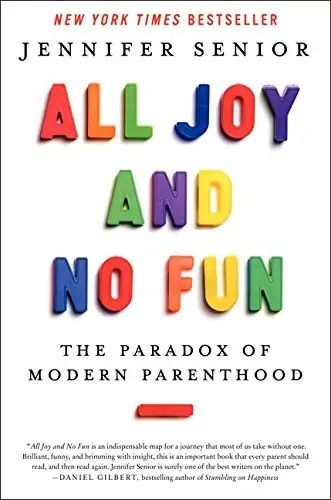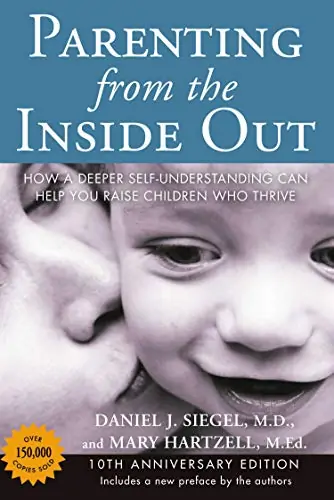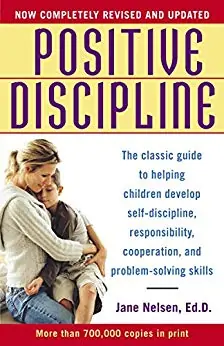One temperament he includes is the highly sensitive child. This topic has it's own book by the expert on being Highly Sensitive, Elaine Aaron, called The Highly Sensitive Child: Helping Our Children Thrive When the World Overwhelms Them.
FRUSTRATION TOLERANCE AND FLEXIBILITY
Dr. Ross Greene presents a model of parenting to help children with low frustration tolerance and difficulty shifting agendas, in The Explosive Child. Children do well if they can. They don’t choose to be explosive and non-compliant. Rather they have a delay in developing skills critical to being flexible and tolerating frustration or difficulty applying these skills.
Explosive Child handouts summarizing book: The Explosive Child, by Dr. Greene.
Videos on Collaborative Problem Solving.
TRAUMA AND ADOPTION / FOSTER CARE
In Beyond Consequences and Control Vol. I and II, by Heather Forbes LCSW, parents and guardians will learn about the body/mind connection as it relates to stress for children, particularly for any children that have experienced trauma. They will be introduced to parenting strategies which are loving and effective, rather than causing further stress to both child and caregiver.
Parenting Alternatives to Control
ADHD AND OPPOSITIONAL DEFIANT DISORDER
 Dr. Russell Barkley is a leading authority in Oppositional Defiant Disorder, ADHD or Disruptive Behavior Disorder. Books by Russell Barkley, PhD: Your Defiant Child Your Defiant Teen and Taking Charge of ADHD. Videos of Dr. Barkeley
Dr. Russell Barkley is a leading authority in Oppositional Defiant Disorder, ADHD or Disruptive Behavior Disorder. Books by Russell Barkley, PhD: Your Defiant Child Your Defiant Teen and Taking Charge of ADHD. Videos of Dr. Barkeleyhttp://www.russellbarkley.org/
ADHD TREATMENT GUIDELINES FOR CHILDREN
ADHD TREATMENT GUIDELINES FOR ADULTS
SENSORY INTEGRATION
Children with sensory integration concerns are discussed in the Out of Sync Child and related books by Carol Kranowitz.
AUTISM / ASPERGERS
Children diagnosed by a specialist to be on the autism and Asperger's spectrum often require sensory integration work from an occupational therapist, like available at Kidsense, and behavioral specialists available through the schools or through developmental disabilities services (MCCFL 541-386-2620). Our understanding of the autistic world is greatly increased by autistic authors themselves, such as Temple Grandin and Donna Williams.
EARLY CHILDHOOD PARENTING
Positive Discipline Series by Jane Nelson
Positive Discipline, Positive Discipline for Preschoolers: For Their Early Years--Raising Children Who are Responsible, Respectful, and Resourceful (Positive Discipline Library), Positive Discipline A-Z: 1001 Solutions to Everyday Parenting Problems (Positive Discipline Library)
Touchpoints 3 to 6, by T. Berry Brazelton
Series by Louise Bates Ames:
Your One Year Old
Your Two Year Old
Your Three Year Old
Your Four Year Old
Your Five Year Old
Your Six Year Old
Your Seven Year Old
Your Eight Year Old
Your Nine Year Old
Your Ten to Fourteen Year Old
PARENTING AS YOUR CHILD BECOMES A TEEN
A lot of what determines how your parenting of your teen will go, is how you parented them as toddlers. Once again, they are asserting their independence. We want them to increase in responsibility, so we can give them increased earned privileges. If we have not had a set of developmentally progressive chores and expectations, it makes it hard to start enforcing limits at this stage.
Here's a sample listing of Age Appropriate Chores
Here's a format for having Family Meetings with your teens
1. Positive Discipline
"Positive Discipline is a positive parenting principle focused on having mutual respect and positive guidance. It focuses on seeing learning opportunities instead of punishing mistakes.
Nelsen coaches parents and teachers to be both firm and kind, so that any child–from a three-year-old toddler to a rebellious teenager–can learn creative cooperation and self-discipline with no loss of dignity or feeling shame.
2. The Whole Brained Child

Here are some takeaways:
- When your child gets upset, you should use empathy to make headway by connecting right brain to right brain. Then, once they are more receptive, you can redirect to the left brain by involving the child to make amends and find a solution, on their own or together.
- When your child gets upset, the upstairs part of the brain (the part where they can make decisions, have self-control and show empathy) is not available. Therefore, in order to connect, you need to wait for your child to calm down or help them calm down, before you try to rationalize with them.
Pair The Whole-Brain Child with Daniel Siegel’s other book, No-Drama Discipline and you’ll have a better road map to handling tantrums, outbursts, back talk and other challenging behavior as your kids move from the toddler to school age years.
3. The Gift of Failure
The Gift of Failure focuses on the critical school years when parents need to take a step back and allow their children to experience the disappointment and frustration that occur from life’s inevitable problems so that they can grow up to be successful, resilient, and self-reliant adults.
When kids experience failure, it gives them the opportunity to learn to solve their own problems.
Especially today in the modern world where studies show grow adults are unprepared for the world and their parents still do laundry, cook, clean and schedule appointments for them… this is practical and important advice to helping your child grow up to live in a world where they can navigate it confidently on their own.
Lacey gives you a blueprint with advice for how to handle homework, report cards, social dynamics, and sports. Most importantly, she sets forth a plan to help parents learn to step back and embrace their children’s failures, as hard as that may be for you to do, you’ll soon see how important it is.
4. All Joy and No Fun
 Sure, parenting books are usually about parenting your children, but this book takes the focus away from kids and put it right on the parents.
Sure, parenting books are usually about parenting your children, but this book takes the focus away from kids and put it right on the parents.
New York magazine writer Jennifer Senior looks at the many ways in which having children reshape their parents’ lives, whether it changes a marriage, their jobs, their habits, their hobbies, their friendships, or their internal senses of self.
Senior writes in All Joy and No Fun of the ‘experiencing self’ vs the ‘remembering self’, and this notion can be freeing for many parents; liberating you from the constant parenting guilt of sacrificing yourself and your time for your child.
In the end, Senior writes, “Mothering and fathering aren’t just things we do. Being a mother or being a father is who we are.”
5. Raising Your Spirited Child

Raising Your Spirited Child is a helpful parenting book for anyone with a child who is just a little bit more and likes to test your resolve.
It’s all about practical parenting strategies to handle big emotions, big temperaments and big situations. The book talks about the intensity of parenting a spirited child affects the way you parent, but how to keep from being discouraged with the intensity of your relationship.
Full of positive language and perspective, it helps you see your child as not stubborn, but tenacious.
6. Transforming the Difficult Child: A Heart Nurtured Approach
My copy of this book has worn edges and a torn cover, if that says anything about how many times I’ve read and re-read all the helpful information inside for my intense son.
The book, Transforming the Difficult Child is a must-read for parents with intense children (and all children) as as way to help treat children labeled as difficult, or challenging, by giving you strategies to help them channel their energies in inspiring ways – always with love at the core.
You’ll have actionable ways to shift negative behavior, build upon your relationship and help your child thrive.
7. No Bad Kids

As the title of her book suggests, everything she offers is to avoid shaming your child. No Bad Kids will teach that lectures, emotional reactions, scolding and punishments do not give our toddler the clarity he needs, and can create guilt and shame, but gives you real-life examples of what to do instead.
The book covers such common topics as punishment, cooperation, boundaries, testing, tantrums, hitting, and more. It’s a helpful guide for the critical years when toddlers are developmentally obliged to test the limits of our patience and love.
 8. Parenting from the Inside Out
8. Parenting from the Inside Out
 Child psychiatrist Daniel J. Siegel, M.D., explains the extent to which our childhood experiences shape the way we parent, no matter how much we want to deny it does. Even for those who have had an wonderful childhood, they may still have unresolved issues preventing them from optimal parenting.
Child psychiatrist Daniel J. Siegel, M.D., explains the extent to which our childhood experiences shape the way we parent, no matter how much we want to deny it does. Even for those who have had an wonderful childhood, they may still have unresolved issues preventing them from optimal parenting.
Parenting from the inside Out uses neuroscience findings and attachment researches to help parents make sense of their life stories, and deal with day-to-day struggles in better ways. Age-appropriate strategies to everyday challenges and also shows you how “brain integration” can help children grow and thrive.
9. Peaceful Parent, Happy Kids
Dr. Laura Markham is one of the most popular and recommended parenting experts out there. Her book, Peaceful Parent, Happy Kids helps parents understand the importance of having a strong connection with their toddler and focuses on problem-solving and not punishment.
Markham talks about how the parent’s mental state greatly affects their children. For example, if you yell at your child, expect that your child will yell. If you want to have calm, respectful and kind children, they learn this from their parents and you need to work on yourself first.
The book will walk you through many common parenting situations such as your toddler not listening or following directions. You’ll have a better understanding of children’s behavior and what’s going on inside, so you can forge a strong connection for better behavior in the future.
10. How to Talk So Kids Will Listen & Listen So Kids Will Talk

The focus of the book is how parents can show empathy towards their child(red) by listening to them, and then validating their feelings. It gives you example after example of how to use language that will help you better communicate with your kids, so when you speak, they listen (and you don’t yell or have to repeat yourself 2.3 million times.)"















0 comments:
Post a Comment